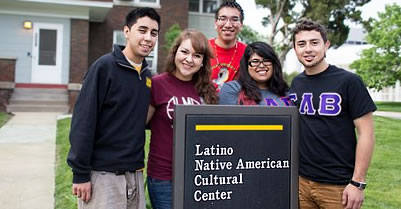WHY GIFTED LATINO STUDENTS ARE OFTEN OVERLOOKED AND UNDERSERVED

Even when schools identify ELL students as gifted, you say the impulse is not to place them in accelerated programs, despite evidence that they benefit from more challenging work while they're learning English.
It's leaving talent on the table when you have these high performing students but you're restraining them. Gifted [ELL] students are actually harmed if they're held back. To me, the real issue is, how many geniuses are being hidden within their school system?
What about the process for identifying gifted ELLs? When schools test ELLs for giftedness, they often rely on observation and prompts consisting of symbols, manipulatives, spacial relationships and patterns. Are these non-verbal tests effective?
The assumption is that if you take away the language barrier, you can make a neutral assessment. We're finding out that's not true and this is a barrier for Spanish speaking students. The consensus out there is that you need multiple measures [verbal and non-verbal] to identify gifted students with language disadvantages.
What about IQ tests?
It's one identification model often used, even though it's difficult to measure true IQ because of language barriers. In fact, you argue that schools' over-reliance on IQ tests is one reason gifted programs are so racially and ethnically homogeneous. The research, meanwhile, shows that all gifted kids, including ELLs, share an important trait — advanced academic ability. Researchers have found that...













